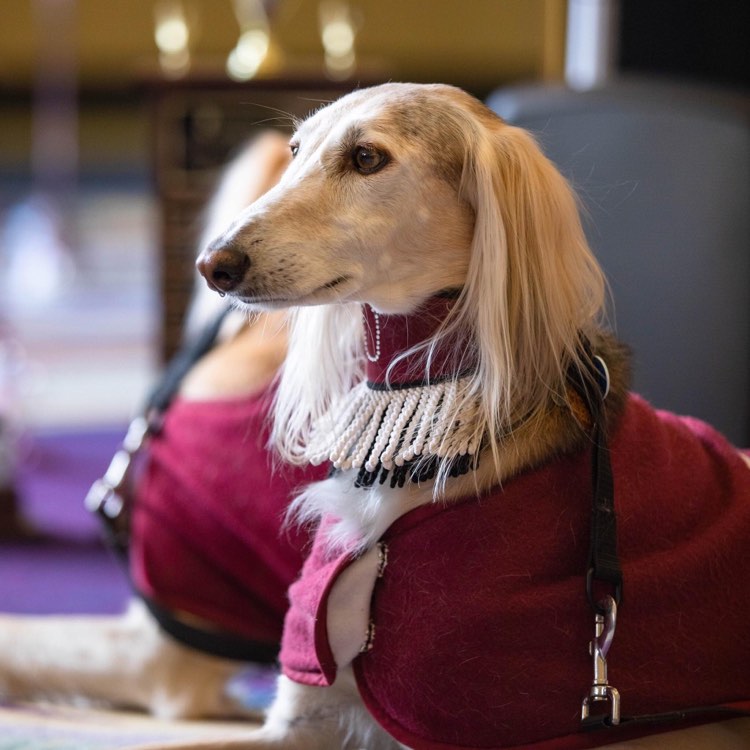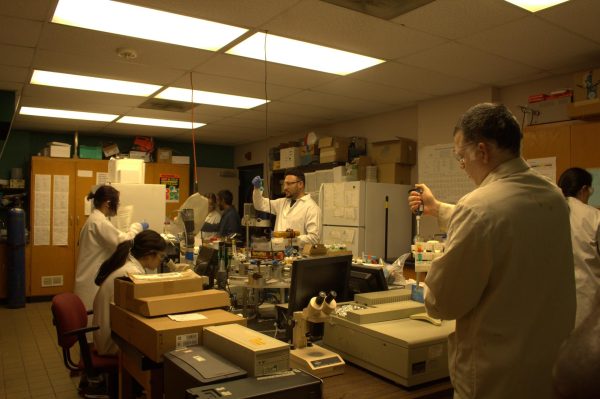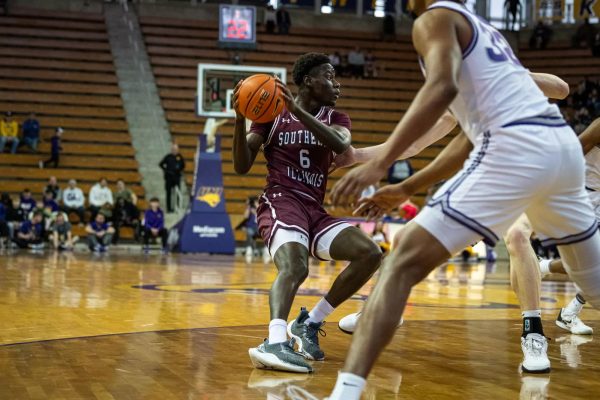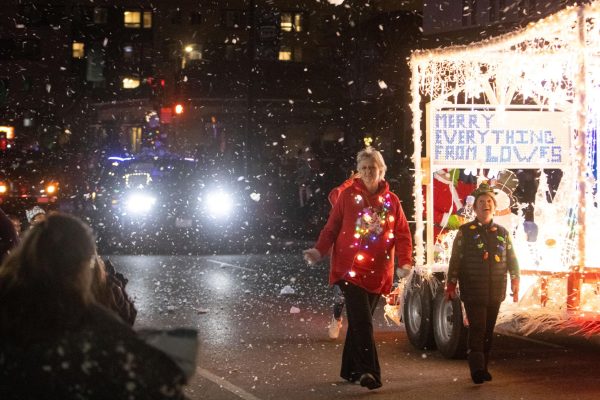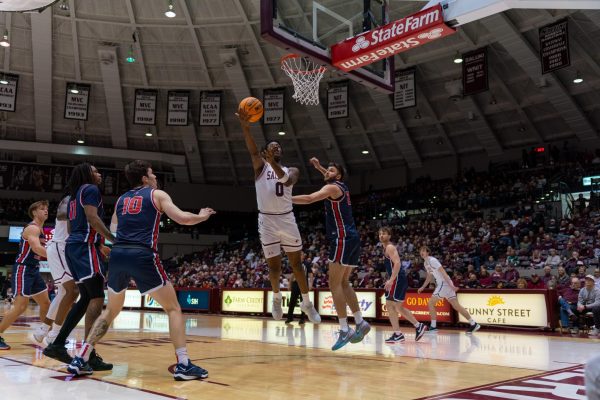Ancient history meets modern tradition: Saluki ambassadors reign on campus
Seti, owned by VIcki Blair, is the official mascot of the Southern Illinois University Salukis.
Watch a saluki running and you will see a sleek, strong and sure canine bounding in strides up to 12 feet long. Salukis were bred for chasing and cornering prey.
“They hunted ostrich. They hunted lions. They hunt gazelle,” said Vicki Blair, who owns eight salukis that act as ambassadors for Southern Illinois University.
When they’re interacting with students, staff and faculty, the dogs are calm and well-behaved, with little evidence of the intensity they bring to the hunt.
Advertisement
“That’s training,” Blair said.
She said people who see her salukis on campus wonder if they’d make good pets. Her answer is yes, as long as the person has plenty of the time and patience needed for training.
If the dogs are not leashed and their interest is piqued by a squirrel or a ball or practically anything small that moves, their natural instincts kick in.
“Once they set their sights on something, they keep running,” Blair said.
And they can run very fast, hitting speeds as high as 43 miles per hour. Their bodies are built for speed with a larger than usual heart, light bones and a slender ribcage. Their maneuverability is impressive, with a long tail that acts as a rudder giving them the ability to turn on a dime.
Salukis were a favorite companion of ancient hunters, with records going back 5,000 years. Images of salukis are found on many Egyptian tombs and mummified remains of the dogs were buried with some Egyptian pharaohs.
Blair has named her salukis with that past in mind. Jasmine and Jafar recently visited with the Daily Egyptian’s multimedia editor for the video below. The others are: Pharaoh II, Ari, Isis, Cleo, Tari and Seti (the SIU mascot).
Advertisement*
Blair says salukis are intelligent and loyal and love laps to snuggle in, despite their size, which can be as much as 60 pounds.
The ambassador dogs feel just as home on campus as their ancestors did in the deserts of Egypt, Blair said. They recently attended homecoming and love interacting with people at events, Blair said.
“I will tell you that they think that they own the place,” she said.
Advertisement



